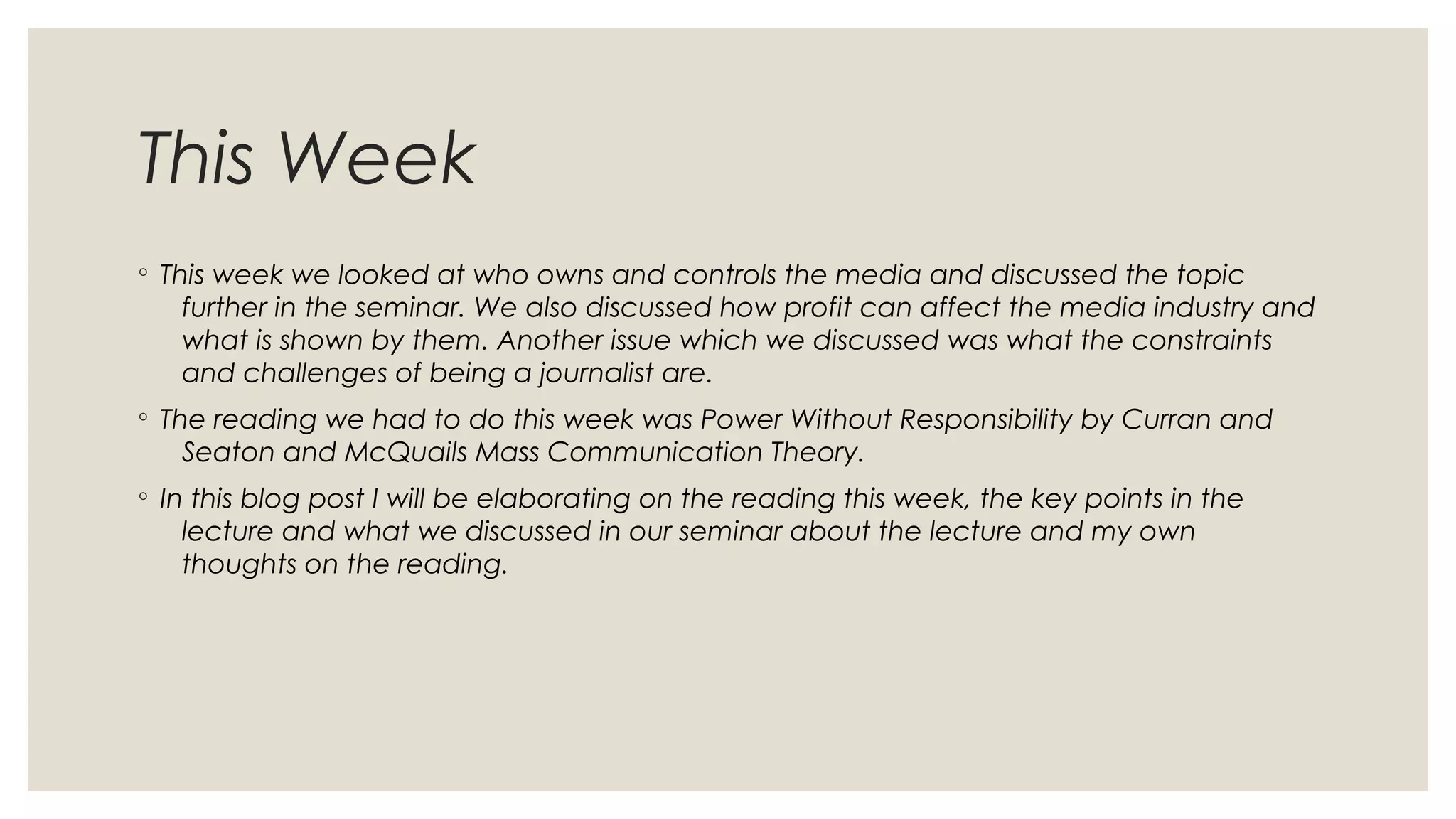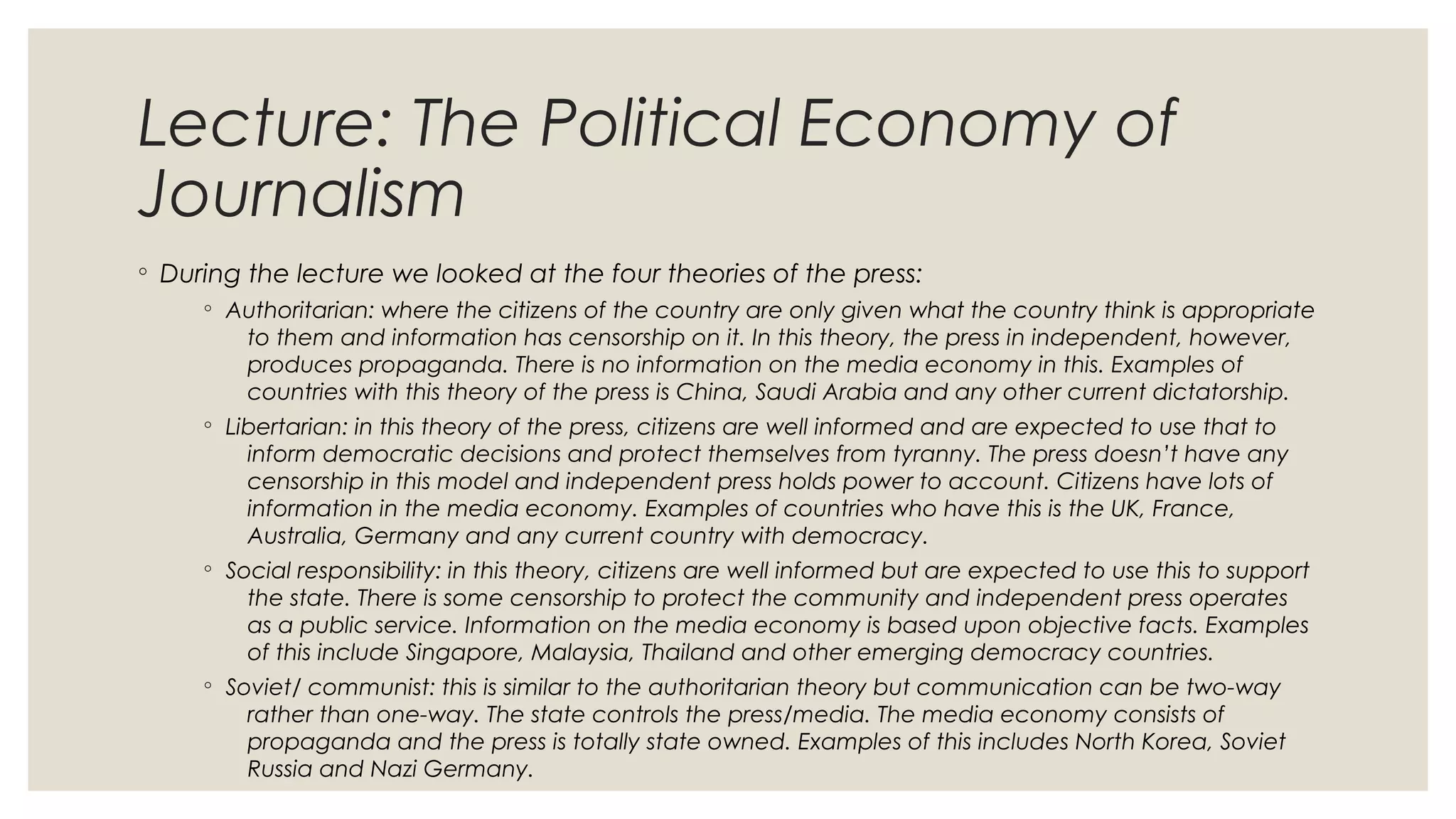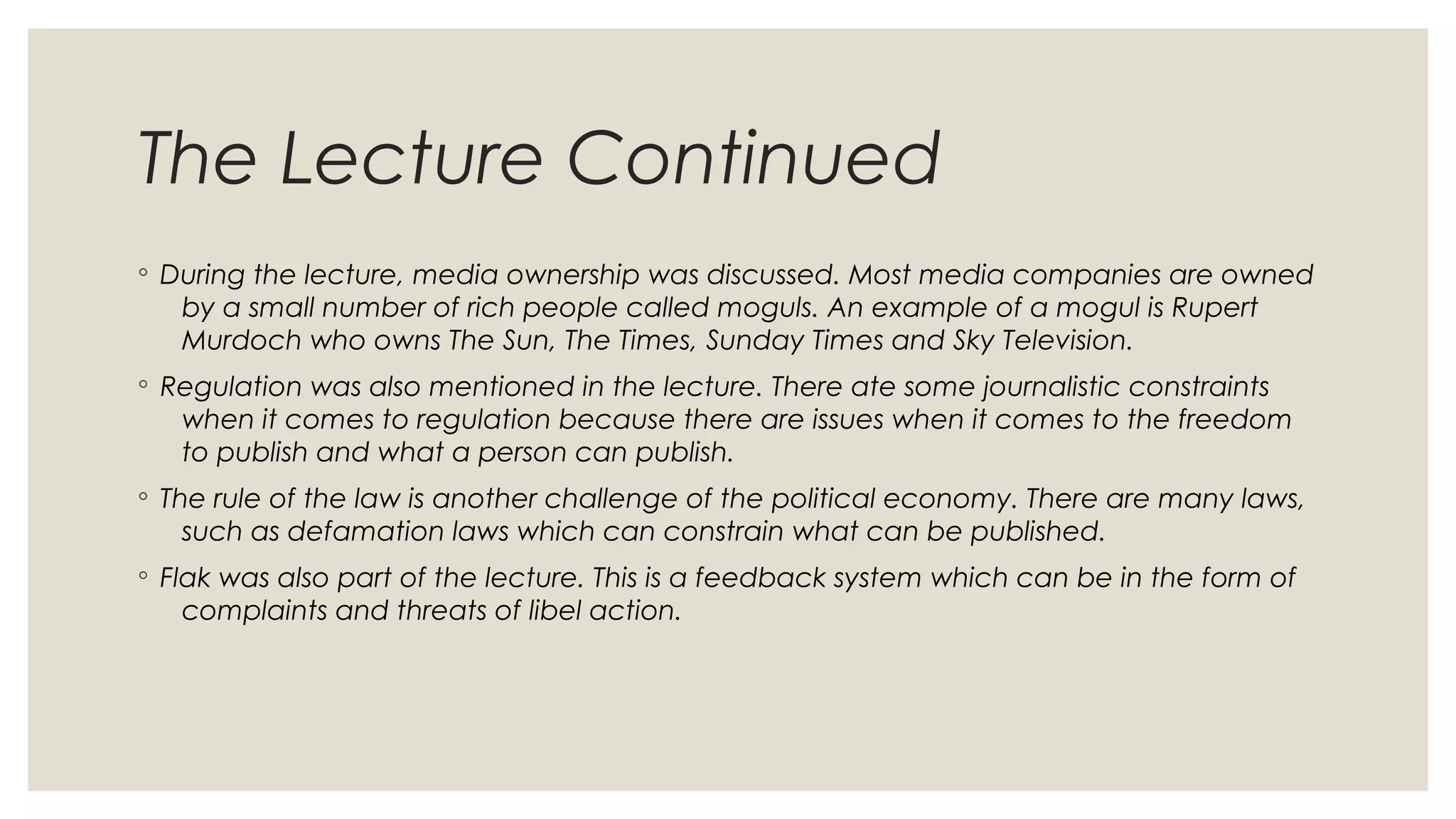This document summarizes a BA journalism student's week 2 activities which included readings on media ownership and control from McQuail's Mass Communication Theory and a lecture on the political economy of journalism. Key points from the readings discussed how economic forces like advertising revenue can influence media content and shape ownership models. The lecture covered four theories of the press and discussed how ownership concentration, regulation, and feedback systems can constrain journalists. In seminar, students debated where power lies in journalism and what factors like political pressures, criticism, and advertising constrain reporting.







